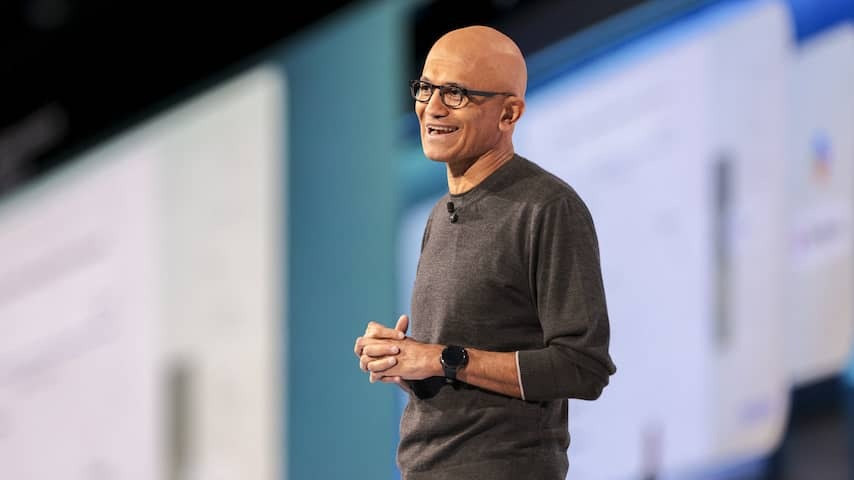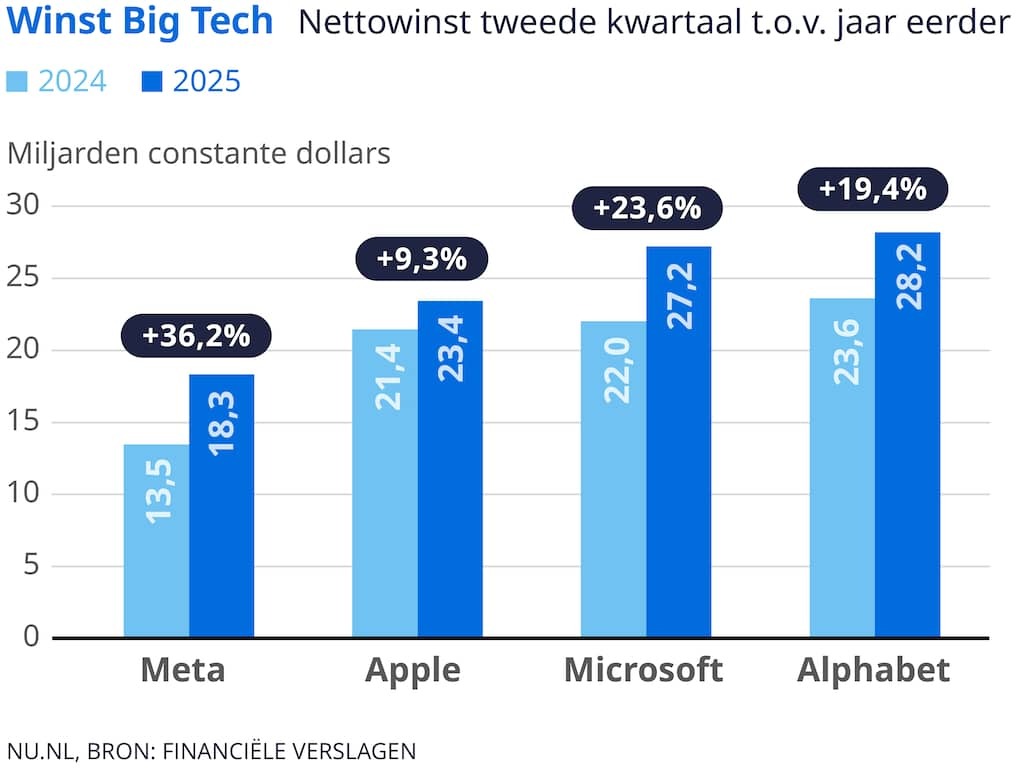
Tech companies like Google, Meta, and Microsoft are doing well financially. Their significant earnings allow them to significantly increase funding for artificial intelligence development.
The arrival of ChatGPT at the end of 2022 caused a surge in interest in artificial intelligence. Suddenly, AI was high on the agenda of the world’s largest tech companies. They either got involved, or they risked missing the boat. Almost three years later, it is mainly the former, and companies continue to pour money into it.
Facebook parent company Meta plans to spend about $66 to $72 billion (57 to 62 billion euros) this year on the development of “super-intelligent AI.” These are the words of CEO Mark Zuckerberg. His company aims to build artificial intelligence that is smarter than humans. The technology is not yet that advanced, but superintelligence “is in sight.”
Zuckerberg thinks that people will have to deal less with productivity if the AI trends continue. “They will then have more time for creativity and connection with others,” he writes in a blog post. “A personal superintelligence that knows us inside and out, understands our goals, and helps us achieve them, will be by far the most valuable.”
To build the technology, a lot of money is needed. Meta’s investments come on top of the tens of billions that the company has already invested in AI development in recent years. Because the company continues to make a lot of profit, it can continue to make those investments.
In recent months, Meta earned more money than analysts had expected. Meta adjusted the algorithms of Facebook and Instagram, which kept people on the platforms for 5 and 6 percent longer, respectively. That benefited the company’s advertising sales.

AI as a steam engine
Microsoft also continues to record strong quarters. The company saw revenues from cloud services grow by about 40 percent compared to last year. These services are important for managing customers’ AI applications. “Cloud and AI are the driving force behind the transformation of business in every industry and sector,” says Microsoft CEO Satya Nadella.
That may sound a bit vague, but tech companies really think that AI will change the world. Sector economist Diederik Stadig of ING calls it “a system technology like the steam engine,” which ushered in the industrial revolution.
Companies want to be ahead
For Google, the rise of AI and competition such as ChatGPT meant that it had to adjust its search engine. Google’s AI model Gemini became more tightly integrated with all kinds of Google services. If you now search for something via the search engine, you will often already receive an AI answer from Gemini above the results. And that works, because according to Google, this overview attracts about two billion users monthly.
The company is therefore able to retain users. The revenues from Google Search even yielded 12 percent more than in the same period last year. That amounts to $54.2 billion.
Stadig expects that the AI investments of tech companies will continue to increase in the coming years. “There is a lot of enthusiasm about the potential of the technology,” he says. “Tech companies believe that being ahead in the field of AI will make them even more important and profitable in the future.”
According to the analyst, it is difficult to say exactly what AI now yields. “Many companies often still report income from AI as part of cloud services,” he says.
Apple is ‘almost never a pioneer’
At Apple, everything is secretive. The company is hardly participating in the AI race for the time being, although Apple is increasingly promising its customers AI functions, including a much-needed update of voice assistant Siri.
Apple still plans to catch up with the competition, reports Bloomberg. Top executives of the company briefed employees this week. They were told that Apple sees the AI revolution as at least as important as the rise of the internet. CEO Tim Cook promises many investments to ensure that Apple becomes an important player.
Cook further said that Apple has “almost never been a pioneer” in the development of new technology. That was also not the case with computers and smartphones. “Apple came up with modern variants of those products,” he says. “That’s how I see it with AI too.”